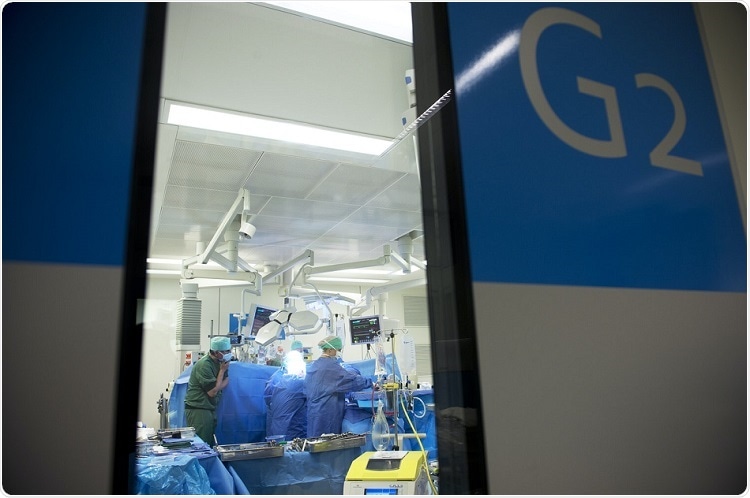The lung transplantation team at UZ Leuven, the university hospital of Leuven, performed a double lung transplantation for the first time with lungs from a donor who had experienced a mild form of COVID-19 three months earlier. The procedure proves that well-selected lungs can be safely transplanted after a SARS-CoV-2 infection. In addition, it is hopeful that lungs can recover sufficiently after COVID-19 to even qualify for a transplant.

Throughout the world, the health system is under pressure due to the corona pandemic. This poses many challenges and unanswered questions, also for transplant dentistry. Due to the increasing risk of infection, more potential organ donors will be infected in the future. In this context, transplant physicians ask themselves two important questions: what is the risk of the virus being transmitted from the organ donor to the organ recipient? And does COVID-19 irreversibly damage the lungs, making them unsuitable for transplantation?
An organ donor is always screened for SARS-CoV-2 upon his death and the result must be negative before he can donate organs for transplantation. However, a negative test does not rule out the possibility that remnants of the virus may still be hiding deep in the lungs. After transplantation, these virus remains may provoke a new infection in the recipient. Such an infection can be very dangerous, because after transplantation a patient receives medication to suppress the immune system and is therefore extra susceptible to infections. Moreover, research shows that COVID-19 can have lasting effects on lung quality due to inflammations with scarring in the lungs.
Successful transplantation
The recent lung transplantation at UZ Leuven offers a first reassuring answer to the question whether organs of patients are still eligible for transplantation after COVID-19. The lungs of the deceased organ donor were, as for any transplantation, thoroughly screened to assess whether they were eligible for transplantation. The lung function of the organ donor was very good and a CT scan showed no signs of lung damage. The surgeons, pulmonologists and virologists involved therefore decided that the risk to the recipient of these lungs was minimal. Staying on the waiting list even longer would pose a much greater risk.
The transplantation went smoothly and the recipient of the lungs tested negative for the coronavirus afterwards. There were no complications and after a month the patient could leave the hospital in good health. Three months after the operation, the patient is doing very well: the lung function is excellent and the CT scan shows no lung abnormalities".
Professor Dr. Laurens Ceulemans, lung transplant surgeon at UZ Leuven
Global impact
The description of the transplant was published in the renowned journal The Lancet Respiratory Medicine. As far as we know, this is the first reported successful lung transplantation of a donor who went through COVID-19.
The successful procedure shows that well-selected lungs can be safely transplanted after a SARS-CoV-2 infection. In addition, it is hopeful that, in harsh COVID-19 times, lungs can recover sufficiently to qualify for a transplant and thus give another patient a second life. Further follow-up is of course necessary: we call on other transplantation teams to also share their findings with organ transplants of former COVID-19 patients".
Professor Dr. Laurens Ceulemans